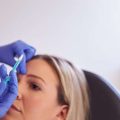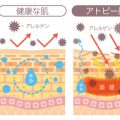Introduction to Medical-Grade Skincare
Medical-grade skincare is steadily gaining attention across the UK, as more people seek effective solutions for maintaining and transforming their skin health. Unlike high street or cosmetic products found on supermarket shelves and beauty counters, medical-grade skincare is rooted in scientific research and developed with a focus on clinical results. These formulations typically contain higher concentrations of active ingredients, are often subject to rigorous testing, and are available through qualified professionals such as dermatologists or medically-led clinics. Understanding what sets medical-grade skincare apart is crucial for anyone aiming to make informed decisions about their skin health, especially in a market saturated with countless options promising rapid results. In this article, we will explore the science behind these advanced products, clarify how they differ from everyday offerings in the UK, and shed light on why they may be the preferred choice for those seeking noticeable and lasting improvements.
2. Key Active Ingredients and Their Scientific Basis
When it comes to medical-grade skincare in the UK, the science behind active ingredients is what sets these products apart from their high-street counterparts. These formulations harness higher concentrations of clinically proven actives, often backed by peer-reviewed studies and stringent regulatory oversight. Let’s explore some of the most impactful ingredients—retinoids, peptides, and antioxidants—and examine the scientific principles underpinning their efficacy in transforming skin health.
Retinoids: The Gold Standard in Skin Renewal
Retinoids, derived from vitamin A, are celebrated for their ability to accelerate cell turnover and stimulate collagen production. In clinical settings across the UK, dermatologists frequently recommend retinoids for treating photoageing, acne, and hyperpigmentation. The mechanism of action involves binding to specific nuclear receptors in skin cells, thereby modulating gene expression related to growth and differentiation. This process leads to smoother texture, reduced lines, and more even pigmentation—outcomes validated by numerous controlled trials.
Peptides: Targeted Cellular Communication
Peptides are short chains of amino acids that serve as messengers within the skin’s extracellular matrix. Medical-grade formulations use specific peptide sequences designed to signal fibroblasts to ramp up collagen and elastin synthesis. Research conducted in British laboratories has shown that topical application of certain peptides can visibly improve skin firmness and reduce wrinkle depth over time. Unlike many over-the-counter products, medical-grade options contain optimised concentrations with enhanced delivery systems for maximal bioavailability.
Antioxidants: Shielding Against Environmental Stress
The UK’s climate—marked by fluctuating temperatures and urban pollution—places significant oxidative stress on the skin. Antioxidants such as vitamin C, vitamin E, and ferulic acid neutralise free radicals before they cause cellular damage. Scientific literature supports their role in reducing inflammation, preventing photodamage, and enhancing the efficacy of sun protection measures—a particular concern given the prevalence of UV-induced ageing seen in British dermatology clinics.
Comparison Table: Key Actives in Medical-Grade Skincare
| Active Ingredient | Main Benefits | Scientific Mechanism | Typical UK Application |
|---|---|---|---|
| Retinoids (e.g., Tretinoin) | Cell renewal, wrinkle reduction, pigmentation control | Binds nuclear receptors; modulates gene expression | Treatment of acne, photoageing under prescription |
| Peptides (e.g., Matrixyl) | Improved firmness, reduced fine lines | Stimulates collagen/elastin synthesis via signalling pathways | Anti-ageing serums & creams dispensed by clinics |
| Antioxidants (e.g., Vitamin C) | Protection against oxidative stress & photodamage | Neutralises free radicals; inhibits inflammatory pathways | Daily defence in serums/moisturisers for urban dwellers |
The Value of Evidence-Based Formulation
The rigorous selection and combination of these actives is what gives medical-grade skincare its transformative potential in the UK context. Each ingredient is chosen based on robust evidence from both laboratory research and real-world clinical outcomes—a standard that ensures efficacy, safety, and alignment with local regulatory requirements. As a result, patients benefit not just from cosmetic improvement but from measurable enhancements in overall skin health.
![]()
3. How British Skin Types and Climate Influence Skincare Choices
When exploring the science behind medical-grade skincare in the UK, it’s essential to recognise the unique characteristics of British skin types and the country’s distinctive climate. For many UK residents, fair or sensitive skin is quite common, often with a tendency towards redness, dryness, or conditions such as rosacea and eczema. This prevalence is due in part to genetic heritage, with many people of Northern European descent exhibiting lighter skin phototypes (Fitzpatrick types I–III). These skin types are generally more reactive to environmental stressors and require thoughtful, targeted care.
The UK climate presents its own set of challenges for skin health. With frequent rain, high humidity, and relatively low levels of sunshine throughout much of the year, British weather can exacerbate certain skin issues. The lack of consistent sunlight means that vitamin D synthesis may be lower compared to sunnier regions, which can impact overall skin vitality and repair. Additionally, colder months bring dry air and central heating—both of which strip moisture from the skin barrier, increasing susceptibility to flakiness and irritation.
Medical-grade skincare formulations designed for UK residents must therefore address these specific needs: robust hydration, protection against environmental aggressors like wind and pollution, and ingredients that support barrier repair. Products containing ceramides, hyaluronic acid, antioxidants (such as vitamins C and E), and gentle exfoliants are especially beneficial in this context. Furthermore, even on overcast days, UV radiation remains a concern; thus, daily use of broad-spectrum sunscreen is recommended by dermatologists across Britain.
In summary, understanding how British genetics and climate interact is crucial when selecting effective skincare routines. Medical-grade products offer tailored solutions that respect these local nuances—providing both preventive care and active treatment for healthier skin in the UK’s ever-changing environment.
4. Clinical Evidence and Regulatory Standards in the UK
When considering medical-grade skincare, robust clinical evidence is a non-negotiable foundation, particularly in the UK’s highly regulated environment. Unlike over-the-counter cosmetic products, medical-grade formulations undergo rigorous clinical studies to substantiate their claims related to efficacy and safety. These studies typically involve double-blind, placebo-controlled trials conducted on human participants under the supervision of dermatologists and other healthcare professionals. The results are then published in peer-reviewed journals or submitted as part of regulatory dossiers.
Overview of Clinical Studies Supporting Medical-Grade Skincare
| Study Type | Description | Typical Endpoints |
|---|---|---|
| Randomised Controlled Trials (RCTs) | Participants randomly assigned to treatment or control group | Reduction in acne lesions, wrinkle depth, pigmentation levels |
| Open-Label Studies | All participants receive the active treatment; no blinding | User satisfaction, improvement in skin hydration or elasticity |
| In Vivo Efficacy Testing | Products tested on live skin (human volunteers) | Barrier repair, photoprotection, irritation potential |
| Comparative Studies | Head-to-head comparison with standard treatments or competitors | Efficacy relative to existing products or gold standards |
The above methodologies are frequently cited within UK-based research and are essential for differentiating medical-grade skincare from beauty counter alternatives. For example, retinoid-based serums and prescription-strength cosmeceuticals must demonstrate measurable benefits and minimal adverse effects before being recommended by British dermatologists.
MHRA and NHS Guidelines: Ensuring Product Safety and Efficacy
The Medicines and Healthcare products Regulatory Agency (MHRA) plays a pivotal role in overseeing the regulation of medical-grade skincare in the UK. Products making medicinal claims—such as treating eczema or severe acne—are classified as medical devices or medicines. These require MHRA approval before they can be marketed to consumers. The following table summarises key regulatory distinctions:
| Product Type | Regulatory Body | Key Requirements in the UK |
|---|---|---|
| Cosmetic Skincare | Trading Standards, Cosmetic Products Enforcement Regulations 2013 | No therapeutic claims; safety assessments required; ingredient labelling mandatory |
| Medical-Grade Skincare (Medicinal Claim) | MHRA (Medicines and Healthcare products Regulatory Agency) | Clinical evidence for efficacy; pre-market authorisation; post-market surveillance; adverse reaction reporting systems mandated |
| NHS-Endorsed Treatments | NHS England; NICE (National Institute for Health and Care Excellence) | Treatment guidelines based on systematic review of evidence; cost-effectiveness analysis included in recommendations for NHS use |
The NHS further reinforces these standards by integrating only clinically validated products into treatment pathways, ensuring that patients across England, Scotland, Wales, and Northern Ireland benefit from proven therapies. In summary, the interplay between clinical evidence and strict regulatory oversight guarantees that medical-grade skincare available in the UK meets exceptional standards of safety and efficacy—a vital reassurance for both healthcare professionals and consumers alike.
5. Transformative Results: Real Stories from British Users
Authentic experiences from patients and practitioners across the UK offer compelling evidence of the impact medical-grade skincare can have on skin health. These real-world cases not only highlight the efficacy of scientifically-formulated products, but also reflect how local lifestyles, climate, and cultural attitudes influence outcomes.
From Chronic Acne to Clearer Confidence
Hannah, a 28-year-old marketing professional from Manchester, struggled with persistent adult acne despite trying countless over-the-counter solutions. Under the guidance of a Harley Street dermatologist, she began a regimen featuring prescription-strength retinoids and medical-grade cleansers. Within three months, Hannah reported significant reduction in inflammation and breakouts, stating, “For the first time since my teens, I feel comfortable leaving the house without makeup.” Her practitioner credits not only the active ingredients but also rigorous monitoring and adaptation to her skin’s needs as key factors in her progress.
Managing Rosacea in British Weather
Rosacea is a common concern in the UK’s variable climate. David, a 45-year-old teacher from Edinburgh, experienced frequent flare-ups triggered by cold winds and central heating. After consulting with his GP and a skin specialist, he was introduced to a targeted serum containing niacinamide and azelaic acid—both available at medical-grade concentrations. Over six months, David observed reduced redness and improved comfort, noting that “being able to manage my symptoms discreetly has boosted my confidence at work.” His practitioner emphasised the importance of combining robust formulations with patient education on triggers unique to UK environments.
Professional Perspectives: Aesthetic Clinics Weigh In
Dr. Priya Singh, an aesthetic doctor based in London, shares that “British patients are increasingly seeking clinically-proven treatments rather than quick fixes.” She recounts numerous cases where individuals with sun damage or pigmentation issues achieved noticeable improvements through bespoke regimens blending antioxidants, prescription retinoids, and professional peels. According to Dr. Singh, “The difference lies not just in the potency of these products but in ongoing support from qualified professionals who understand both the science and local context.”
Empowering Patients Across the UK
The collective stories reveal a consistent theme: medical-grade skincare delivers tangible results when tailored to individual needs and supported by expert guidance. Whether addressing acne, rosacea, pigmentation or age-related changes, British users are finding renewed confidence—and healthier skin—by embracing evidence-based solutions designed for their unique environment.
6. Incorporating Medical-Grade Skincare into Your Routine
Adopting medical-grade skincare is a step-change in how you approach skin health, and doing so thoughtfully can maximise benefits while avoiding common missteps. Here’s how to bring these advanced formulations into your daily routine, with advice tailored for those living in the UK.
Start with a Professional Consultation
Before purchasing medical-grade products, seek an assessment from a qualified dermatologist or skin specialist—many UK clinics offer initial consultations, sometimes even on the NHS if there’s a clinical indication. A professional can analyse your skin’s needs, discuss your goals, and recommend evidence-based products that are suited to your skin type and local environmental factors (such as weather and pollution levels typical of British cities).
Introduce Products Gradually
Medical-grade skincare is often more potent than over-the-counter options. Local dermatologists suggest starting with one new product at a time—commonly beginning with a cleanser or serum. Apply it every other day at first to gauge your skin’s response. Be mindful of potential irritation, especially during colder months when central heating can exacerbate dryness.
Avoid Common Pitfalls
- Overuse: More isn’t always better; follow recommended usage instructions meticulously.
- Mixing Actives: Take care when layering ingredients like retinoids and acids. If unsure, ask your practitioner for a tailored regimen.
- Skipping Sunscreen: British weather may be unpredictable, but UV exposure occurs year-round. Daily broad-spectrum SPF is essential when using actives like vitamin C or retinol.
Adapt to the British Climate
The UK’s damp winters and sporadic sun call for regular reassessment of your routine. You might need heavier moisturisers in winter or lighter formulas during humid summer spells. Keep an eye out for signs of irritation or dehydration, and adjust accordingly.
Local Dermatologist Tips
- “Don’t expect instant results—give each product at least six weeks before assessing its effectiveness.” — Dr Sarah Williams, London-based consultant dermatologist
- “Look for brands that offer clear clinical data, and avoid online ‘miracle’ trends.” — Dr Tariq Mahmood, Manchester
The Value of Consistency
The best outcomes stem from steady, long-term use rather than sporadic application. Set reminders if needed and make your skincare a non-negotiable part of your daily self-care ritual.
By integrating medical-grade skincare thoughtfully and seeking support from trusted professionals, you can harness the science behind these products to achieve healthier, more resilient skin—whatever the British weather brings.


